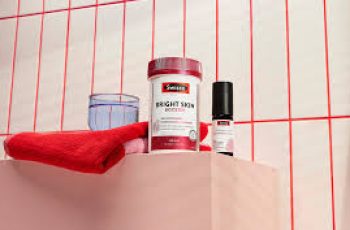
Is salicylic acid good?
Salicylic acid belongs to the beta hydroxy acid (BHA) class of chemical exfoliants and is derived from willow bark. This powerhouse is found in acne skincare products.
It is an oil-soluble ingredient, which means it can penetrate into the lower layers of the dermis to remove dirt, bacteria, and excess sebum from pores, which can lead to blackheads, pimples, and other blemishes if left untreated.
It also contains anti-inflammatory and antibacterial properties, which can help reduce and calm existing breakouts and inflammation while preventing new ones from forming.
If you want to learn more about salicylic acid and its effects on your skin, read our dedicated blog post.
Is it bad to take salicylic acid every day?
Not necessarily, but only if you use it correctly in your daily routine and don’t combine it with other strong formulas that can overdry and irritate your skin. To avoid a salicylic acid overdose, it’s recommended to introduce salicylic acid into your routine slowly at first. Try using it every other day to see how your skin reacts. Once tolerance is built up, you can use it more frequently, especially if you have an oily and acne-prone skin type.
If you use salicylic acid daily, you should consider a product formula that works well on your skin. What I mean by that is that a toner or face wash infused with salicylic acid will rinse off the skin, so it won’t cause much irritation. This is the best way to use BHA twice a day without worrying about side effects. If you want more results, you can use a serum with salicylic acid, which can stay on the skin for longer, preferably at night so that it can work its magic while you get a good night’s sleep.
If you have a more sensitive skin type or suffer from certain skin conditions (such as rosacea), are pregnant, or are taking certain medications, it’s best to avoid salicylic acid altogether. You can use other chemical peels, such as lactic acid or other types of polyhydroxy acids (PHAs), after consulting with a doctor or dermatologist to confirm that it’s safe for you.
Why shouldn’t you use salicylic acid?
If you have a dry skin type that’s prone to sensitivity, you shouldn’t use salicylic acid. While BHA is generally considered safe to use, it can be too strong for some skin types and often causes a variety of side effects, including discomfort, dry skin, redness, flaky patches of skin, and irritation. You’ll also find that salicylic acid can strip your skin of important oils if overused. These are necessary for comfortable skin and a properly functioning skin barrier that protects against free radicals, pollution, UV rays, and other environmental influences.
Before using any product containing salicylic acid, you must perform a patch test 24 hours in advance, especially if this is your first time introducing salicylic acid into your daily routine.
What Does Salicylic Acid Do for Skin?
There are many benefits of salicylic acid for skin. Here are some of the key benefits experienced by those who have introduced this powerful force into their daily routine.
Salicylic acid is oil-soluble and can penetrate deep into the lower layers of the skin and pores to remove bacteria, dirt, and excess sebum.
Salicylic acid removes the buildup of dead skin cells to reveal new, glowing skin underneath.
Salicylic acid has anti-inflammatory and antibacterial properties that help keep skin calm, soft, and supple.
Salicylic acid regulates the skin’s sebum production, keeping the skin balanced and healthy.
Salicylic acid works on the outer surface of the skin to fight active acne and reduce the size of acne while preventing new ones from forming.
These are some examples of what salicylic acid does for the skin. For more information on the effects of BHA on the skin, visit our Skin School page. Stop by there to learn more.
Is salicylic acid a good facial toner?
Absolutely! In fact, toners are considered the most popular and effective formula that many skincare enthusiasts prefer to use. By using a toner, you will find that your skin benefits from the various benefits that salicylic acid can offer to the skin without having to worry about it being stripped of important oils and water. To avoid signs of irritation or dryness, you can also use a serum containing moisturizing ingredients such as hyaluronic acid and niacinamide after using a salicylic acid toner.
Does salicylic acid treat blackheads?
Yes, it does. Fighting blackheads is one of the many benefits that salicylic acid can offer when it comes to fighting skin blemishes. Since BHA can penetrate into the lower layers of the skin, it can get to the root of the blackhead problem, which is clogged pores. The buildup of bacteria, dirt, excess sebum, and other impurities can lead to blackheads, pimples, and acne.
We cover how to treat blackheads with salicylic acid in more detail, so read our dedicated blog post to learn more.
Should salicylic acid be used in the morning or at night?
If you have developed a tolerance to the stronger BHA, you can use salicylic acid twice a day. If you use it during your morning routine, you will find that it clears away any barrier created by the layer of dead skin cells on your skin, ensuring it can absorb other products you put on it. At night, you will remove all the impurities, bacteria, and debris you absorbed during the day, leaving your skin thoroughly clean.
Now that you have more information, hopefully I have answered the question: Is salicylic acid good? Don’t forget to visit our Instagram for daily skincare tips, product launches, and exclusive discounts.


